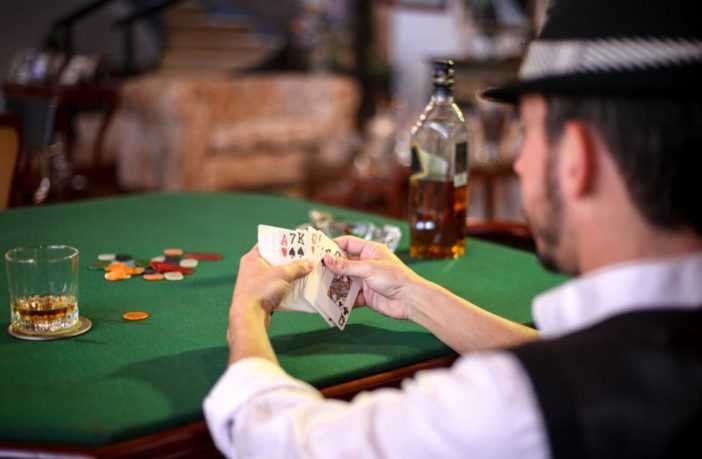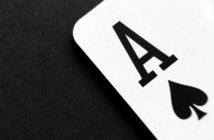There’s more to winning at poker than a good poker face. Like every competition, the game has written and unwritten rules.
Written rules include how to play Texas Hold ’em and when to bet, raise, fold or flop. Unwritten rules about player behaviour are as important as the mechanics of the game.
While the dealer guides the game, each player must know and follow poker etiquette. A player who is unaware of etiquette slows the pace and creates serious problems.
Keep reading to learn the proper way to behave at a poker table. Although there’s no such thing as a steady income in poker, 25% of players make money.
Your Invitation to the Best Online Pokies in Australia
Like a punt on the slot machines?
Our top rated slots for October 2019 are the smash-hit online pokie sites: Ruby Fortune and Jackpot City Casino.
These sites include some impressive matched bonuses – up to $750 and $1600 respectively! With the potential for some seriously big wins, here’s your chance to get a piece of the action:
Common Rules of Poker Etiquette
The following guidelines promote sportsmanship. They work at the World Series of Poker as well as your dining room table.
Proper etiquette results in a fast-paced game that’s enjoyable for everyone at the table.
Pay Attention
When you’re seated at the table be present and pay attention. If you’re distracted give your seat to someone else.
Sometimes people listen to music while playing poker. If you do, keep one ear open and the volume down. If you can’t hear the dealer or other players you’ll delay the game.
You may miss vital information if you listen to music instead of your opponents.
Always Act in Turn
The action in poker moves clockwise around the table. Each player takes a turn.
If you act out of turn it can influence another player’s action. You can provide an unfair advantage.
For example, if you discard before your turn another player may choose to bluff. He couldn’t do that if he played before you. That isn’t fair to the other players.
It’s forgivable if you act out of turn once by accident. Repeated acting out of turn is cause for ejection. It shows disregard for the game and your fellow players.
Make your intentions clear to the dealer and other players. It’s a good idea to announce your play when you place your chips.
Show the Total Amount You Have in Chips
It’s okay to ask someone how much they have in their stack.
Try not to block your chip stack with your hands. If someone asks how much you have, show them or state the amount you had at the start.
Stack your chips in logical piles so you and your opponents can estimate the amount. Keep your chips organized in your own space.
Never mix your chips with other players’ or spill over into their area.
Don’t add chips to your stack in the middle of a hand. Never remove chips from the table to reduce the total amount of your stack.
Don’t Delay the Action
Poker players spend a lot of time watching at the beginning of the game. That’s because most players throw away the starting hand. Everyone wants the game to move as fast as possible.
It’s reasonable to take time to think through your next move. If you need extra time for a tough decision, say “Time, please.” Otherwise, act as fast as possible.
Try not to stall the action. Here are a few examples of what not to do:
- Don’t talk to the waitress, the dealer or another player when you should play your hand.
- Don’t watch television instead of the poker table.
- Don’t use your phone or eat a meal during a game.
Pay attention and play so the game moves at an enjoyable pace for everyone at the table.
Don’t Toss Chips into the Pot
Splashing the pot is the term for throwing chips right into the pot. It’s a bad idea for a couple of reasons.
First, it’s hard for the dealer and players to see if you bet the right amount. Second, splashing the pot can delay the game. If a dealer can’t see that you put in the right amount he’ll stop the game.
The correct way to bet is to put your chips on the table in front of you. The dealer confirms the amount, then adds it to the chips in the middle of the table.
Avoid a String Bet or String Raise
Always put the right amount of chips in the pot all at once when you raise or bet.
A string bet or string raise occurs when less than the full amount goes into the pot. The player puts too few chips in, then returns to his stack to get more chips without announcing a raise.
You must announce the raise and put the correct amount in or it’s an illegal play. Always announce when you intend to raise.
Playing Table Stakes
Poker played with table stakes refers to the money and chips in front of you on the table. You can’t use any other money during that hand.
If you run out of chips or cash during the hand you’re “all in.” You won’t lose the pot since someone bet more money than you have on the table.
Table stakes also mean you can’t remove any money from the table until you leave the game.
Never Discuss Your Hand
Giving information to the other players is bad form. It doesn’t matter if you’ve thrown away your cards or not.
What you say can lead to an unfair advantage. Telling players which cards you have or threw out influences player decisions.
It’s bad form to fold face-up or show your cards to another player before you fold. Never tell what your hole cards were.
Don’t say or do anything that reveals information about a hand that’s in progress. Never try to influence a hand you’re not playing.
Keep Your Cards on the Table
Most places demand you keep your cards on the table.
It’s also a good idea for your strategy. Keeping your cards on the table prevents another player from seeing them.
Plus, the dealer always looks at the table in front of each player. If the dealer can’t see your hand, he may deal your next card to someone else.
Never hide your cards. Always be clear that you’re in the hand.
Turn All Cards Face Up at the Showdown
The dealer must see your entire hand to determine if you won.
Show all your cards, not the five you used to win. This proves you have a legitimate hand of seven cards.
Expect other players to object if you don’t show all your cards. If no one calls your final bet or raises it, you don’t need to show your cards.
Treat Everyone with Respect
Be polite and respectful towards other players, the dealer, and employees. A good attitude and manners create a positive environment for competition.
Don’t belittle another player or tell them what you think they should do instead. Never blame the dealer or another player for your results.
If you’re out of the hand, be mindful of the other players. Don’t make a lot of noise, talk nonstop or play loud music. Never make or take a phone call at the poker table.
Treat the cards, table, and property of the club and opponents with consideration. Don’t swear or argue.
Behave like a grownup if there’s a discrepancy between players. Contact the floor man if it’s a live game or the support team for an online game to resolve the issue.
Only contact authorities if you’re certain a player broke the rules.
A Hit and Run is another example of poor poker etiquette. It occurs when a player leaves right after winning a generous pot from another player.
Don’t pack up and leave the table right after you win.
Play an Ethical Game
Players who use deceptive tactics to gain an advantage are angle shooting.
When someone talks about the strength of their hand or next move during a multi-way pot it’s an angle shoot.
It’s angle shooting if you’re unclear on purpose during your turn.
One of the worst ways to angle shoot is to misrepresent your hand. Don’t say you have a flush when you don’t. Never use a large chip then pretend you meant to make a smaller bet.
Be Gracious When You Win or Lose
Don’t be an obnoxious celebrator when you win. Thank the other players for a good game. Give the dealer a tip and stack your chips in a calm, quiet manner.
Don’t mope when you lose. Never slam the table, throw your cards or swear. Don’t complain or blame anyone else.
If you need help, read serious books on poker to improve your game.
Tip the Dealer and Staff
Tipping isn’t required, but it’s a good way to say thanks to the dealer and staff for professional service.
When you win an average-sized pot or accept drinks and food from the staff, give them a tip.
Some players tip the same amount on every hand they win. Other players give larger tips less often. If you’re unsure of how much to tip, copy the better players at your table.
Don’t forget to figure in the rake (payment) the casino or poker room gets for running the game. It’s usually a percentage of the pot.
Ready to Play?
Now that you know proper poker etiquette it’s time to find a place to play. Check out our insider’s guide to playing poker in Australia.







